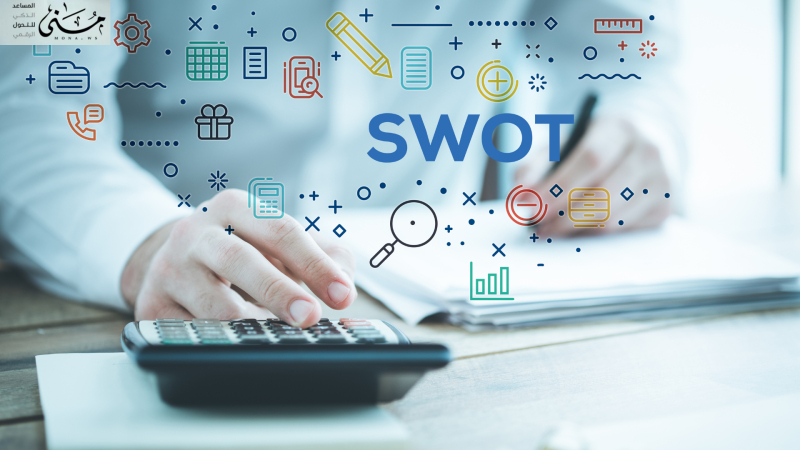In recent years, the world of cryptocurrencies and decentralized finance (DeFi) has witnessed tremendous growth, becoming a focal point for investors and developers alike. With the increasing reliance on non-traditional financial solutions, new promising opportunities have emerged. However, these opportunities also come with challenges that require a deep understanding and effective tools to ensure security and efficiency in transactions.
Data Analysis and Information Tools: Understanding the Market and Making Decisions
To ensure well-informed investment decisions in the world of cryptocurrencies and DeFi, users need powerful analytical tools that provide a comprehensive market overview. Below are some of the most prominent tools that help analyze data and make smart decisions:
Price Tracking Websites
These websites offer accurate data on cryptocurrencies, including real-time prices, trading volume, market capitalization, and historical charts, helping investors monitor market movements and trends.
-
Examples: CoinMarketCap, CoinGecko.
Charting Tools
Chart analysis is crucial for understanding market trends, identifying entry and exit points, and utilizing technical indicators for precise decision-making. These tools are available on trading platforms or as advanced external solutions.
-
Examples: TradingView, built-in analysis tools in platforms like Binance and Bybit.
Specialized News and Article Websites
Staying updated on the latest developments is essential to understanding trends and the impact of events on the market. These platforms provide reliable news on regulations, technical updates, and in-depth analyses.
-
Examples: CoinDesk, Decrypt, The Block.
Blockchain Explorers
Blockchain explorers enable users to track transactions, wallet addresses, smart contracts, and network fees, enhancing transparency in transactions.
-
Examples: Etherscan for Ethereum, BscScan for Binance Smart Chain.
DeFi Project Analysis Tools
These tools help analyze DeFi projects by measuring total value locked (TVL), potential returns, and risks associated with different protocols, making it easier to make informed investment decisions.
-
Examples: DeFi Llama for tracking TVL and leading DeFi projects.
These tools provide accurate data and deep analyses, helping investors and users make smart decisions and safely explore opportunities in the cryptocurrency and DeFi markets.
Data Analysis Tools from Doc Suite
Doc Suite offers advanced solutions for data management and analysis, helping users track digital assets, analyze portfolio performance, and manage risks efficiently. Doc Suite platforms provide detailed reports and dynamic dashboards that display real-time market data, giving investors and analysts a clearer view of cryptocurrency trends and DeFi projects. These tools also support integration with various data sources, enhancing the accuracy of analysis and ensuring well-informed decision-making based on reliable information.
Security and Protection Tools: Your Digital Fortress
With increasing cyber threats in the cryptocurrency and DeFi world, securing digital assets is crucial. Security and protection tools add an extra layer of defense against cyberattacks, helping users keep their wallets and investments safe.
Antivirus and Anti-Malware Software
These programs protect against digital threats such as viruses, Trojans, and malware that may target digital wallets or private encryption keys.
-
Examples: Bitdefender, Norton, Kaspersky.
Virtual Private Networks (VPNs)
Using a VPN adds an additional security layer by encrypting connections and hiding IP addresses, making it harder for hackers to track user activity or intercept data when dealing with cryptocurrencies online.
-
Examples: NordVPN, ExpressVPN, ProtonVPN.
Password Managers
Managing strong and unique passwords for each account reduces security breach risks. Password managers help generate and store complex passwords securely, protecting accounts from brute-force attacks.
-
Examples: LastPass, 1Password, Bitwarden.
Two-Factor Authentication (2FA)
Enabling two-factor authentication on critical accounts such as digital wallets and trading platforms is essential for asset protection. This technology adds an extra security layer by requiring a second verification code upon login.
-
Examples: Google Authenticator, Authy, YubiKey (for hardware authentication).
Understanding Phishing and Social Engineering Risks
Awareness of risks such as phishing (attempts to steal information via fake websites or emails) and social engineering (exploiting trust to deceive users) is essential for digital asset protection. Users should be cautious of suspicious links, ensure they use official websites, and never share private keys or seed phrases with anyone.
By following these measures and using appropriate security tools, users can reduce digital risks and better secure their assets in the cryptocurrency and DeFi world.
Risk Management and Research Tools: Invest Wisely
Making informed investment decisions in the cryptocurrency and DeFi markets is crucial for minimizing risks and maximizing returns. Risk management and research tools provide the necessary information and resources to help investors navigate the market effectively.
Trading Simulators
Trading simulators allow users to test their strategies in a risk-free environment using virtual funds. These tools are useful for beginners learning market fundamentals and for professional traders testing new strategies without risking real capital.
-
Examples: Binance Testnet, Crypto Parrot, TradingView Paper Trading.
Portfolio Trackers
Portfolio tracking tools help monitor investment performance in real time, allowing users to evaluate returns, asset distribution, and historical data analysis to refine their investment strategies. These tools provide detailed dashboards displaying data in an organized and easy-to-understand manner.
-
Examples: CoinStats, Delta Investment Tracker, Zapper.
Continuous Learning Resources
Staying up-to-date with cryptocurrency market developments and DeFi technologies is essential for making smart investment decisions. Continuous learning resources, such as online courses, blogs, forums, and digital communities, offer opportunities to gain knowledge and interact with industry experts.
-
Examples: Educational platforms like Coursera and Udemy, specialized blogs like CoinDesk and The Block, forums like Reddit (r/cryptocurrency) and BitcoinTalk.
By leveraging these tools, investors can enhance their ability to manage risks, improve strategies, and make more informed decisions in the cryptocurrency market.
Conclusion
Having the right tools is essential for successfully and safely exploring the cryptocurrency and DeFi world. By using appropriate tools for data analysis, risk management, and security enhancement, investors and traders can make well-informed decisions and reduce the risks associated with this volatile market.
For beginners, it is best to start with the basics, such as price tracking, using secure wallets, and understanding trading mechanisms, before gradually expanding to more advanced tools like technical analysis and portfolio management. Continuous learning and market adaptation are key factors in achieving success in this field.
Finally, it is always important to trade and invest responsibly, allocating capital in a way that does not affect personal financial stability. Never make financial decisions based on speculation or emotions; always conduct your own research, verify information sources, and fully understand the risks before making any investment.










Comments
Add New Comment